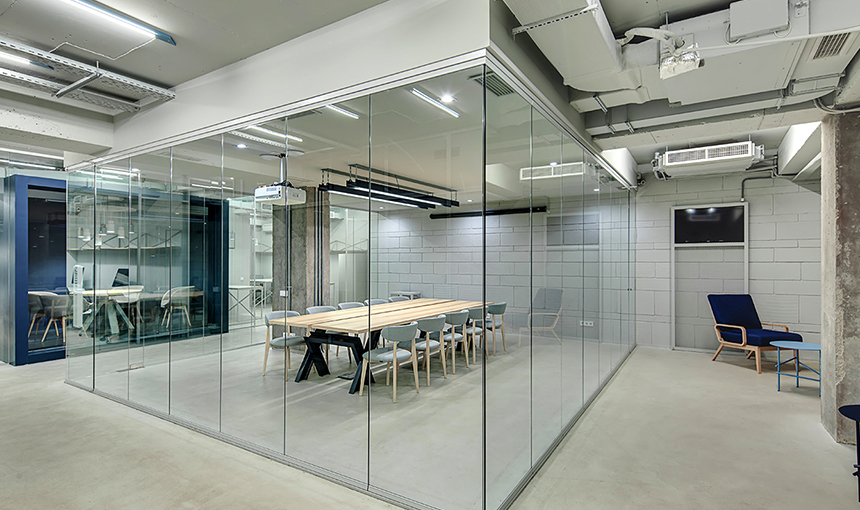Acoustic Glass - What, Why, and When?
Rapid urbanization across India has created a massive impact on the Indian economy. However, urbanization has also resulted in noise pollution, inadequate infrastructure, high population density, amongst others. The sound levels in metros and mini-metros go all the way up to 79 decibels, way higher than the government-approved noise-approved levels (55 decibels – day and 45 decibels – night). With alarmingly high noise pollution, urban citizens crave a peaceful and calm environment. Noise-free surroundings play a crucial role in reducing mental fatigue. The usage of soundproof glass (or acoustic glass) windows in apartments can keep unwarranted noise pollution at bay. When used in commercial buildings, soundproof glass windows can help improve the productivity level of the occupants. In this blog, we look at the essentials of acoustic glass and how acoustic glass windows help maintain calmness in urban households and offices.
What is Acoustic Glass?
Acoustic glass provides a high level of sound insulation. Soundproof glass window and door solutions from AIS Windows have the potential to reduce sound intrusion by up to 42 decibels. With such high levels of sound insulation, outside noise pollution will slowly become a thing of the past for you. What makes soundproof glass or acoustic glass different from ordinary glass, which is majorly used in making windows? The key difference lies in the manufacturing of acoustic glass, where two layers of glass are sandwiched together with a special Polyvinyl Butyral (PVB) interlayer between them. The PVB layer holds the glass panes together and acts as a shield that does not allow noise and unnecessary sound vibrations to pass through to the other side. The single-pane appearance in the acoustic glass is due to the PVB layer. You would not even realize that the soundproof glass is a sandwich of two glasses with naked eyes. Depending on the soundproofing levels, the acoustic glass has to be installed in various sizes, thicknesses, and glazings.
Why should you use Acoustic Glass?
Now that we have covered the basics of soundproof glass, let's deep dive into 'why' acoustic glass? Windows and doors made of acoustic glass offer a wide range of benefits:
Increased Safety
In comparison to tempered and annealed glass, the acoustic glass windows offer better safety to the occupants. Since the acoustic glass contains an inner PVB layer, it becomes difficult to break. If the acoustic glass window does break due to some reason, the glass pieces do not fall out due to the PVB layer.
Improved Security Levels
As the window made of acoustic glass is difficult to break, it results in improved security for the building's occupants. This is one of the most significant plus points of acoustic glass windows over standard glass windows.
Wide range of health benefits
Acoustic glass windows and doors keep the temperature inside the place (i.e.,home or office) at optimum levels. Energy efficiency is one of the biggest advantages of soundproof glass doors & windows. This is because the rooms' temperature would not fluctuate so much, thereby improving the efficiency of the various equipment used in the place. Acoustic glass does not block natural light but blocks or reflects the unhealthy Ultra Violet (UV) & Infra-Red (IR) rays, which improves the occupants' overall health.
When to use Acoustic Glass?
In general, acoustic glass doors and windows are used in scenarios where you want the best noise-reduction solution at your disposal. Extremely thick acoustic glass doors and windows are ideally used in cases where a high noise-free environment is necessary. They are widely used in recording studios where a top-notch level of noise reduction is required. On the other hand, relatively less thick soundproof glass doors and windows are suited for commercial and residential buildings. Soundproof window solutions from AIS Windows comprise soundproof window frames that are fusion-welded and double-sealed to the glass using high-quality silicon materials. Such a composition helps provide the perfect noise-reduction solution for your place (i.e., home or office). Here is the brief list of applications that can use soundproof glass to its fullest potential:
- Music Rooms
- Classrooms
- Recording Studios
- Commercial Buildings
- Residential Apartments
- Hospitals
Conclusion
Acoustic Glass or soundproof glass windows can be of great help when you want to filter out the external noise. Doors and windows made of acoustic glass help enhance the internal air-quality, thereby creating a positive impact on the health. Explore our range of Acoustic Glass Solution



